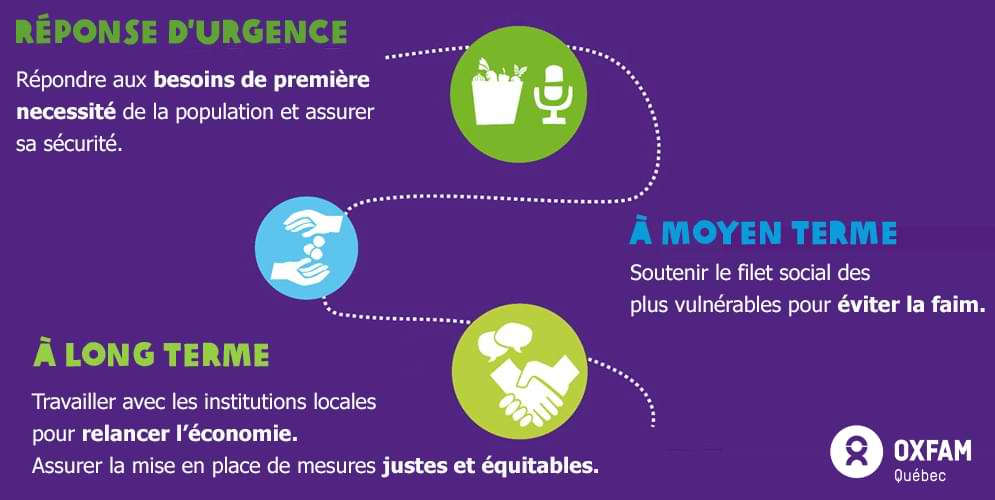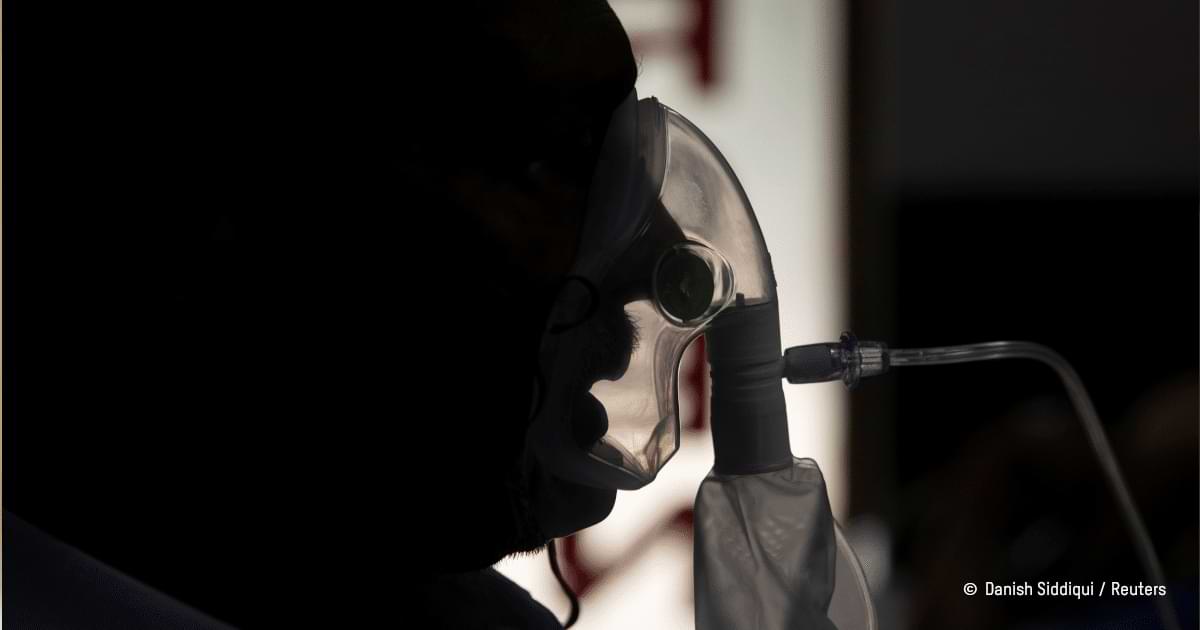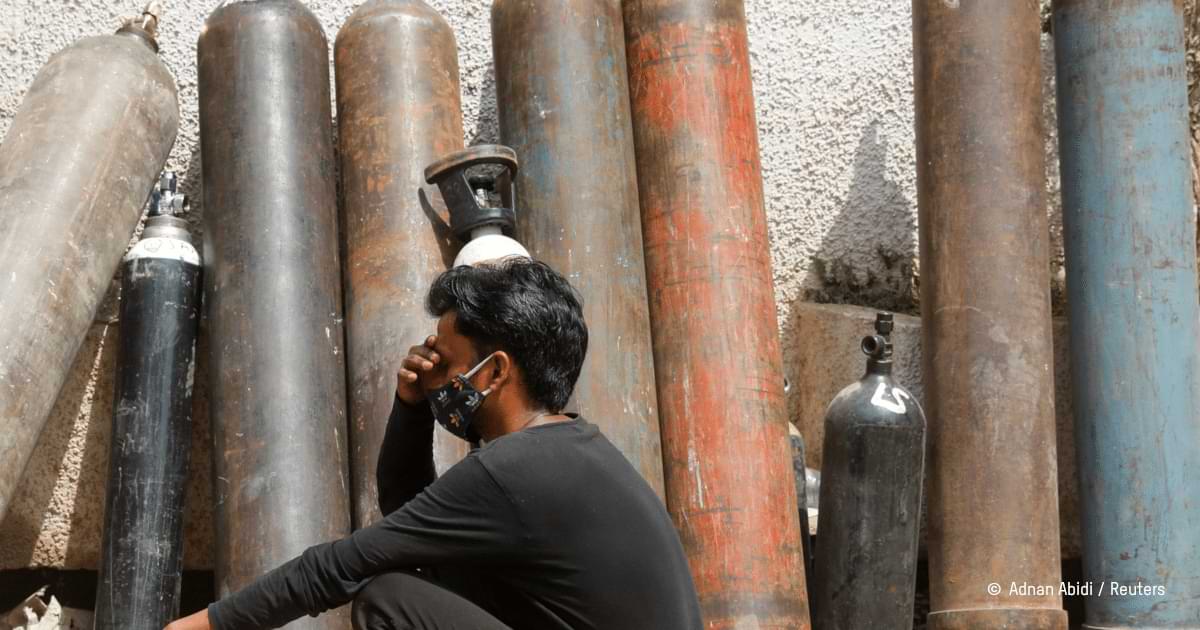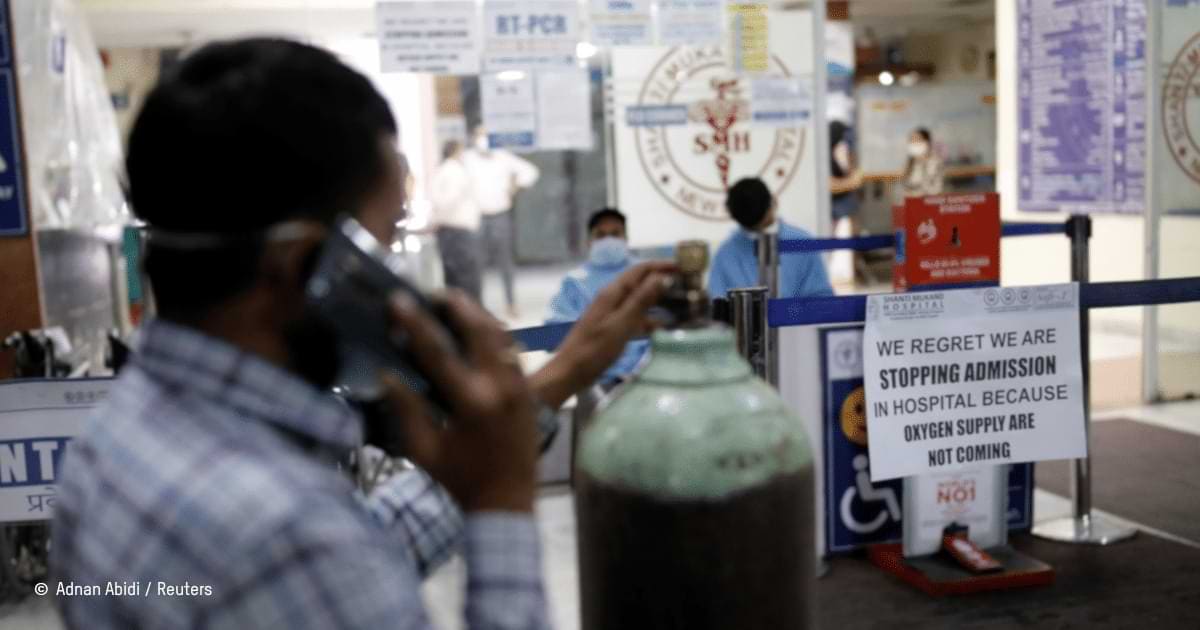India: The ravages of COVID-19
India is experiencing a deadly wave of coronavirus with more than 350,000 new COVID-19 infections in the last week of April. This country of almost 1.4 billion inhabitants now accounts for 40% of new global contaminations. In the most affected regions, Oxfam teams are organizing themselves to meet the needs of the populations.
Almost 200,000 people have died due to the epidemic
India does not have enough beds, oxygen and medicine
Overloaded, hospitals cannot meet needs
Wave of COVID-19 disease attacks India
In New Delhi, the most affected city, crematoriums are overcrowded, and thousands of funeral pyres are lit in the streets.
Hospitals are unable to meet the demand for treatment. People are desperate for medical care and are struggling to pay for oxygen and medication.
The poorest migrant workers are unable to work, travel, or afford food and health care and suffer the most.
Oxfam’s field team is currently working with local institutions
Oxfam supports the end of the crisis by:
- Distributing and installing medical equipment and accessories at government institutions (hospitals/health centers)
- Distributing safety and hygiene kits including masks, gloves, soap, and sanitizers to frontline workers
- Providing food and water to stranded workers and other vulnerable communities
- Engaging with policy makers to ensure the COVID-19 vaccine is purchased at true cost prices and provided free of charge to all
- Sending cash to poor households, especially the ones headed by women, to pay for their immediate needs or establish small businesses.
Priority to the medical sector
Our immediate priority is to supply hospitals and health workers with medical equipment and PPE so they can continue treating those who are sick.
But to avoid a worse humanitarian disaster it is vital we stop the spread and so we are also preparing handwashing stations and awareness campaigns to help people stay safe.
We are particularly concerned about migrant workers and other marginalized groups who may be stranded in the open and will be hit hardest by lockdowns and the economic shock.
A long-term response

An act that changes lives
By acting together, we can continue to improve the daily lives of many people in emergency situations. You can change lives by supporting Oxfam’s activities in India.
$ 25
I offer a water filter for a whole family
$ 65
I offer meals to a family for a week
$ 250
I offer 10 survival kits



